Is your dog refusing to eat even when you have given him their favorite food? Are they doing it even when you give them more meat, less rice, and no veggies? Are they not even coming close to their plates, let alone going there, sniffing it, rejecting it, and making their demands rather loud and clear to you? Whenever this happens, it is not a pleasant scenario at all. This is especially so when your dog is a voracious eater. Sometimes, even such dogs refuse to eat, but still, it gets you thinking.
How do you find out why your dog is not eating?
If you face this situation – my dog won’t eat – do not start panicking. There must be some reasons why they are behaving that way. There are certain factors that you will do well to keep in mind:
- Check for visible changes
- Assess the food
- Look for signs of any anxiety or stress
- Look for signs of dental problems
- Get their medical condition checked
- Take weather or temperature changes into account
- See if you are spoiling them
- Consult a veterinarian
Check for visible changes – Start by observing if your dog shows discomfort or illness.
Assess the food – Examine the food you are offering them, especially when buying it readymade from the market.
Look for signs of anxiety or stress – There are so many reasons why your dog could get stressed, such as changes in the environment, the introduction of a new pet, and a new routine.
Look for signs of dental problems – Dental issues like tooth decay, mouth injuries, and gum diseases are common problems in canines and can make it painful for your dog to eat.
Get their medical condition checked – Different medical conditions, such as infections, kidney disease, or digestive problems, can hurt your dog’s appetite less. They may have cancer, and you may not even know that!
Consider weather or temperature changes – Extreme weather conditions can affect your dog’s hunger. This is especially so when it is too hot outside!
See if you are spoiling them – Habituating your dog to too many table scraps and treats can break their eating habits.
Consult a veterinarian – If the situation does not improve in a day, contact a veterinarian immediately.
Common reasons why dogs stop eating
If you feel that your dog won’t eat or drink and lays down, there could be the reasons why your dog has lost their appetite:
- Health issues
- Stress or anxiety
- Dietary changes
- Behavioral problems
- Spoiled eating habits
- Environmental factors
- Age-related changes
Health issues – health problems such as dental pain, gastrointestinal distress, infections, and systemic diseases can lead to dogs suffering loss. For that matter, your dog’s desire to eat could be impacted by health conditions such as kidney disease, pancreatitis, liver problems, and cancer.
Stress or anxiety – Dogs tend to be sensitive to environmental changes. So, in situations that may cause them stress, such as moving to a new home, changes in routine, the arrival of a new pet, or loud noise that makes them anxious, they may lose their appetite.
Dietary changes – If you make any abrupt changes to your dog’s diet, they may be discouraged from eating. They may refuse to eat if the texture or taste of their meals changes all of a sudden.
Behavioral problems – Your dog might avoid eating food because of behavioral issues such as resource guarding, associating mealtime with negative experiences, and dominance struggles.
Spoiled eating habits – If your dog has got used to receiving table scraps or treats, they may refuse to have their regular meals. So, spoiling their habits lowers their interest in the food they are supposed to have.
Environmental factors – Environmental factors such as extreme weather conditions, lack of access to fresh water, or discomfort owing to excessive cold or heat may hurt your dog’s appetite-related changes – When dogs age, their metabolism slows, reducing their hunger.
Best solutions to encourage your dog to eat
If you are worried about why won’t my dog eat, there are a few solutions that you can eminently try to remedy the situation:
- Maintain a regular feeding schedule
- Offer high-quality food
- Warm up the food
- Add toppings or mix-ins
- Try different feeding methods
- Limit treats and table scraps
- Provide exercise and mental stimulation
- Consult a veterinarian
Maintain a regular feeding schedule – It is significant to be consistent in such cases. Have set meal times and stick to them as much as possible.
Offer high-quality food – Provide your dog with high-quality and nutritious food that meets their dietary necessities. At times, changing the type of food or the brand might pique their interest in their meals.
Warm up the food – If you heat the food a bit before serving it, that will release aromas that will make the food a lot more appealing and a proposition to your dog. However, ensure you are not making it too hot – warm it slightly to enhance its taste and smell.
Add toppings or mix-ins – You can sprinkle a little bit of bone broth or a teaspoon of wet dog food atop the regular food to make the meal more enticing for your dog.
Try different feeding methods – Some dogs prefer to be fed by hand, and some like interactive feeding toys that dispense food. Use the method they like so that appetite loss may be prevented.
Limit treats and table scraps – If your dog is used to getting table scraps or treats, it might limit their interest in their regular food.
Provide exercise and mental stimulation – Regular and physical stimulation can stimulate your dog’s appetite.
Consult a veterinarian – If you see other worrisome symptoms along with your dog’s loss of appetite, immediately get advice from a veterinarian.
Know when to see a veterinarian.
You may be wondering why my dog won’t eat his food and whether you should get it checked by a vet. Well, there are some situations where you should do so:
- a long duration of loss of appetite
- accompanying symptoms
- recent changes or trauma
- Age and pre-existing conditions
- Failure with attempts to encourage them to eat
- instinctive concern
A long duration of loss of appetite – If you see your dog skipping only a couple of meals, it is normal, but any more, it should be an immediate cause for concern.
Accompanying symptoms – Watch if they have any other signs that should worry you, such as the following:
- vomiting
- diarrhea
- lethargy
- excessive thirst
- weight loss
- Changes in behavior
- discomfort
Recent changes or trauma – If your dog has had a recent change in their environment, diet, or routine, it may make them reluctant to eat. The same is also applicable in cases of physical trauma.
Age and pre-existing conditions – senior dogs and ones with already existing health issues may be more vulnerable to changes in appetite.
Failure with attempts to encourage them to eat – You may have tried different things to get your dog to eat, such as changing their food, using food toppers, and altering the time you feed them, but with Failure. That could signify a deep issue requiring professional medical evaluation and intervention.
Instinctive concern – As a pet parent, if your gut is telling you that something is not right, even though there are no obvious signs, it is still suggested that you go ahead and consult a veterinarian. That way, you will get peace of mind, and any issue will be detected immediately.
The importance of water intake
This is a significant reason why my dog won’t eat at times. There are several reasons why your dog needs to stay properly hydrated, such as temperature regulation, nutrient absorption and digestion, organ function, and joint health. Dogs regulate their body temperature primarily through panting, and they need enough water to stay calm. Water helps them digest their food by aiding the breakdown of the nutrients and their absorption in the digestive tract. They also need proper hydration, so vital organs such as kidneys function well. Sufficient hydration also helps keep their joints healthy by ensuring optimal mobility and lubrication. Now, there are several steps you can take to make sure that your dog is adequately hydrated:
- provide clean and fresh water
- monitor water consumption
- incorporate water-rich foods
- give them water during physical activities
- get them checked regularly by the vet
Make sure that your dog always has access to fresh and clean water. Pay attention to the amount of water your dog drinks in a day. You can include wet food, vegetables, and fruits that are high in water so that their hydration can be properly supplemented. Please provide them with water when they partake in physical activities and afterward.
Handling the situation with new puppies
Taking care of the lack of appetite in new puppies requires patience. It is natural for such young dogs to have occasional fluctuations in eating habits, and there can be various reasons for that. First, you ensure you offer them the right food for their breed and age. Every puppy needs a balanced diet that supports their growth and development. It is also essential to establish a routine of feeding *time and provide them with a comfortable and calm environment where they can eat without worries.
Ensure there are no distractions during mealtime – also offer them food at consistent intervals; otherwise, my dog won’t eat. Always think of the temperature of the food you are serving them. You can warm it slightly before serving it to them to enhance its aroma and, thus, make it more enticing for the pup. You can also top it with some wet food or treats. If you see that they are not eating for over a day with other worrying symptoms such as vomiting and lethargy, get advice from a vet.
Additional tips to keep in mind
At a basic level, watch their weight, never force them to eat, and be patient with them when they are not eating. Apart from that, there are a few other factors to keep in mind here:
- regular exercise
- stress management
- proper dental care
- Avoiding overfeeding treats
- Vaccinations and parasite control
- Quality rest and sleep
Make sure that your dog gets a regular dose of physical activity. Not only does exercise keep them fit, but it also stimulates their appetite. Dogs tend to be sensitive to stress and changes in their environment.
You have to minimize stressors by maintaining a stable routine, offering reassurance in stressful situations, and providing them with a secure and comfortable living space. If your dog has dental issues, it can be hard for them to eat. If you feed them too many table scraps or treats, it will spoil their eating habits as well. Make sure your dog is up-to-date on preventive treatments and vaccinations for parasites. They also need enough rest so that they can have a healthy appetite.
Conclusion
One of the worst situations for you as a pet parent is when your dog won’t eat and refuses to eat their regular meals. As long as there are no worrying symptoms associated with it, they should be fine and ready to eat the next meal. However, if they do not do so and if you see them getting progressively worse, take them to the vet immediately. Still, there is no need to panic here as such situations are always preventable and manageable – all it would take is some effort, understanding, knowledge, and patience on your end. Just hold your back up, and there should be no problem here.
 DogExpress
DogExpress

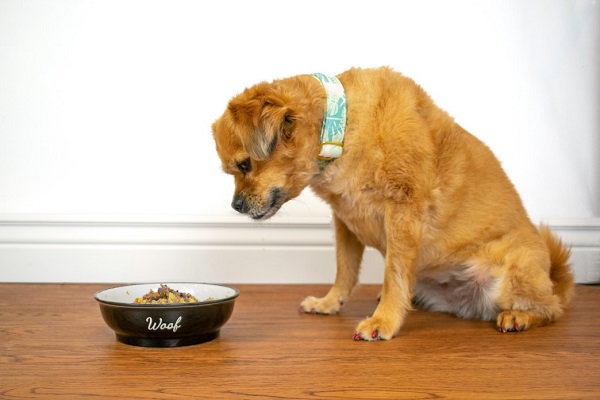
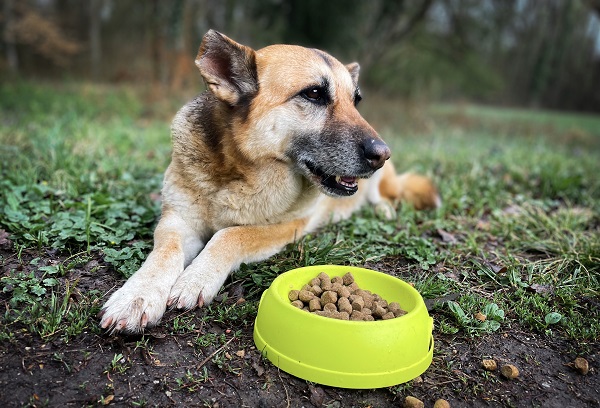
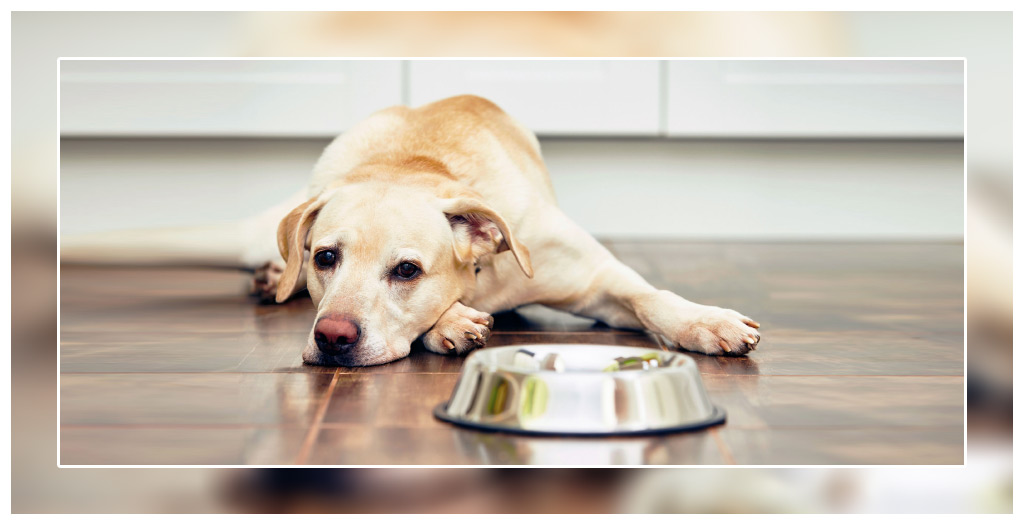
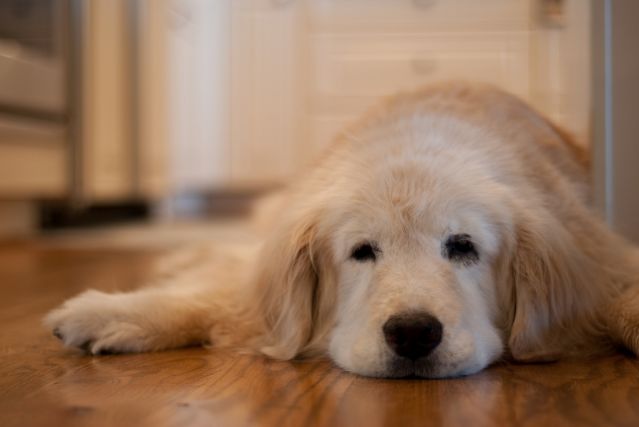
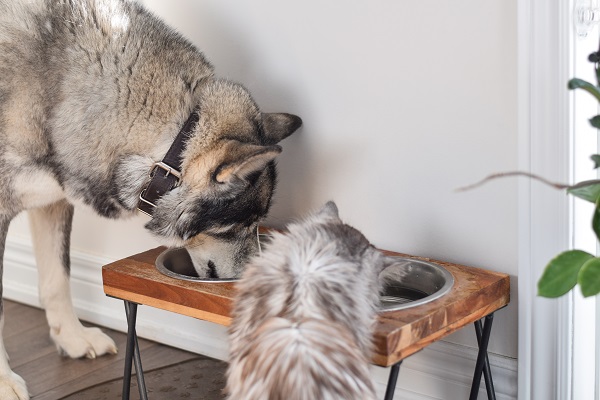

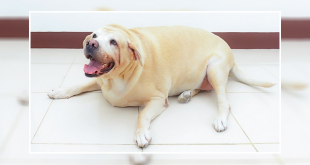

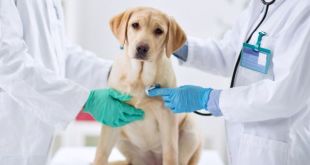












 in Chandigarh, India.
in Chandigarh, India. 

